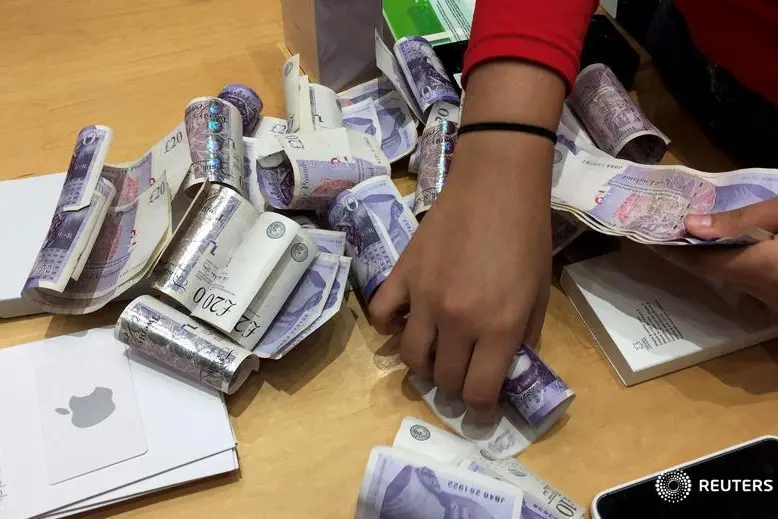PHOTO
LONDON - Sterling inched down from a six-month high against the euro and was a touch softer against the dollar on Tuesday, as a boost from the Brexit Party's decision not to contest previously Conservative-held seats in Britain's upcoming election faded.
The pound rallied as much as 1% versus the dollar on Monday after Brexit Party leader Nigel Farage said that to better tackle anti-Brexit forces he was standing down candidates in seats won by the Conservatives in 2017.
While the move was seen as a boost for Conservative Prime Minister Boris Johnson ahead of the Dec. 12 election, currency analysts said plenty of headwinds for sterling remained.
This was reflected in a more cautious note to trading on Tuesday.
"Yesterday's sterling move was very large for what we saw as a limited change in the outlook for the election," said Adam Cole, head of FX strategy at RBC Capital Markets.
"A Tory (Conservative) majority is a bit more likely but there are still obstacles," he said.
At 1550 GMT, the pound was down 0.1% on the day at $1.2840 GBP=D3 , having flirted with $1.29 on Monday. The U.S. currency was broadly firmer ahead of a key speech by U.S. President Donald Trump later this session.
Against the euro, sterling was a touch firmer on the day at around 85.76 pence EURGBP=D3 , but a tenth of a percent weaker than the six-month peak of 85.62 pence it hit on Monday.
If the Conservatives win a majority, the pound could bounce 3%, according to a recent Reuters poll. Bookies now say a Tory majority as the odds-on favourite.
Jim Reid, a strategist at Deutsche Bank, said that while the Brexit Party move was positive for the Conservatives, it might only bring an additional 10-15 seats.
"So, helpful to the Tories rather than game changing," he said in a note.
Meanwhile, an opinion poll by Survation showed the lead held by the Conservatives over the main opposition Labour party had narrowed over the past week. Support for the Conservatives rose one point to 35%, while Labour was up 3 points to 29%.
Economic data continued to play second fiddle to the looming election.
Britain's employers cut the most jobs in over four years between July and September, according to official data which highlighted how the labour market is slowing.
The unemployment rate fell back to 3.8%, its lowest level since early 1975, during the third quarter. But falling employment, weaker wages growth and fewer vacancies pointed to a weaker outlook.
Currency analysts said a weakening economy and expectations for a Bank of England (BoE) rate cut in the months ahead were additional reasons to be cautious on the pound.
Two BoE policymakers voted to cut rates last week and others could follow if growth remains weak and uncertainty persists about the longer-term trade ties between Britain and the European Union.
(Reporting by Dhara Ranasinghe, additional reporting by Yoruk Bahceli; Editing by Andrew Cawthorne and Mark Potter) ((Dhara.Ranasinghe@thomsonreuters.com; +442075422684;))





















